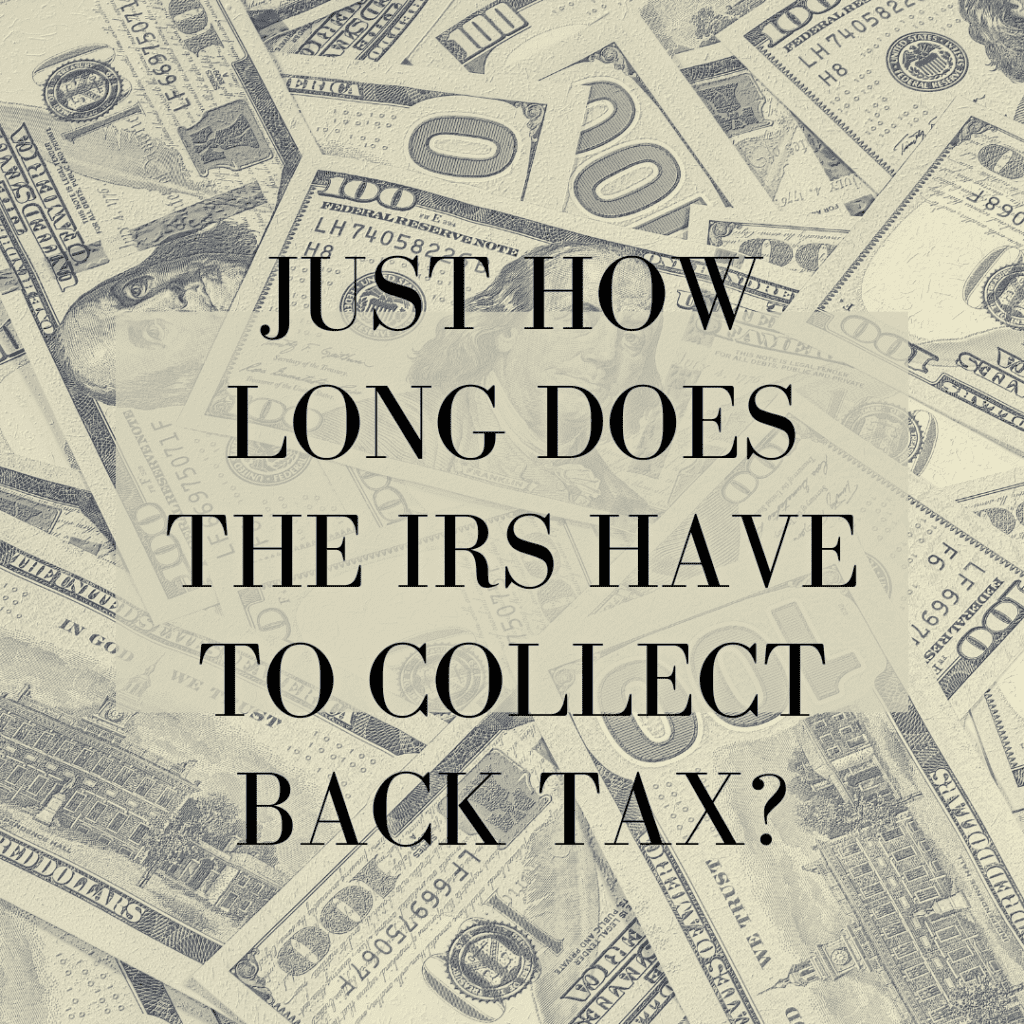The Countdown Begins: How long can the IRS collect back taxes? Revealing the Collection Statute Expiration Date for the IRS to Collect Back Taxes!
Introduction to How Long Can the IRS Collect Back Taxes
Are you one of the many Americans who owe back taxes to the IRS? If so, you might be wondering just how long the IRS has to collect these taxes from you. The countdown is on, but don’t worry, we’re here to guide you through the ins and outs of the Collection Statute Expiration Date (CSED) – the date when the IRS can no longer legally pursue you for your outstanding tax debt. In this comprehensive blog post, we’ll delve into the details of the collection process, shed light on the factors that can extend or shorten the collection period, and provide you with valuable insights to help you navigate this complex landscape.
Understanding the Collection Statute Expiration Date (CSED)
To grasp the concept of the Collection Statute Expiration Date (CSED) and its significance, let’s first define it. The CSED represents the limited timeframe within which the Internal Revenue Service (IRS) can actively pursue and collect back taxes from taxpayers. Once this expiration date passes, the IRS loses its legal right to pursue further collection efforts. In other words, your outstanding tax debt becomes null and void. While this might sound like a relief, it’s vital to understand the intricacies involved to make the most of this window of opportunity.
Factors Influencing the Collection Statute Expiration Date
The duration of the collection period can vary, with several factors coming into play. Let’s explore some key considerations that influence the length of time the IRS has to collect back taxes.
The Date the Tax Return Was Filed
The date you filed your tax return plays a significant role in determining the CSED. If you filed your return on time, the collection period typically starts on the date of assessment, which is usually a few weeks after you submit your return. On the other hand, if you filed your return late, the assessment date is pushed forward, potentially extending the collection period.
Extensions, Audits, and Other Factors
Various circumstances can affect the CSED. Requesting an extension to file your tax return or undergoing an IRS audit will typically lengthen the collection period. Additionally, filing for bankruptcy or submitting an Offer in Compromise can pause collections until the IRS accepts or rejects the proposal.
Understanding these factors will help you determine the length of time the IRS has to collect your back taxes and strategize accordingly.
The Statute of Limitations for Collecting Back Taxes
Now that we have a better understanding of what influences the CSED, let’s dive into the IRS’s statute of limitations for collecting back taxes.
General Timeframe for How Long Can the IRS Collect Back Taxes: 10 Years
The IRS generally has ten years from the date of assessment to collect outstanding taxes. This ten-year timeframe is dictated by the Internal Revenue Code Section 6502, which sets the expiration date for collection efforts. Once this date passes, the IRS can no longer legally pursue the tax debt.
Exceptions to the General Rule
While the general statute of limitations is ten years, certain exceptions can either extend or shorten this period.
Extension of the Collection Period
If you entered into an installment agreement with the IRS, the collection period is automatically extended. The duration of the extension is equivalent to the remainder of the ten-year statute of limitations from the date of assessment. Therefore, if six years remain on the statute of limitations, entering into an installment agreement will extend the collection period by six years.
Suspension of the Collection Period
In certain circumstances, the collection period can be temporarily suspended. Examples include when you file for bankruptcy or submit an Offer in Compromise. During the suspension period, the collection clock stops ticking, and the remaining time will resume once the suspension is lifted.
The Collection Statute Expiration Date (CSED)
Knowing when the CSED occurs is critical for taxpayers hoping to free themselves from the burden of back taxes. This date signifies the end of the IRS’s ability to collect your outstanding tax debt and offers a glimmer of hope for a fresh start.
Determining the CSED
To determine your CSED, review the Notice of Federal Tax Lien or the Notice of Intent to Levy that the IRS may have sent you. These notices provide the CSED for each type of tax owed. Alternatively, you can contact the IRS directly or consult a tax professional to obtain this crucial information.
Importance of the CSED
Understanding your CSED is vital as it sets a clear deadline for the IRS to pursue collection efforts. Once this date passes, they can no longer legally demand payment from you. While it doesn’t absolve you from paying your taxes, it does provide relief knowing that the IRS can’t continuously pursue you indefinitely.
Navigating the Collection Period
Now that you are familiar with the collection period and the CSED, let’s explore some tips to help you navigate this challenging phase.
Consult a Tax Professional to Understand How Long Can the IRS Collect Back Taxes
Navigating the complexities of the IRS collection process can be overwhelming. Seeking the guidance of a qualified tax professional like a tax relief attorney can simplify matters, ensuring you understand your rights and options throughout the journey.
Analyze Your Financial Situation
Assessing your financial situation is crucial to understand what options are available to you. Gathering detailed information about your income, assets, and expenses will help you and your tax professional determine the best course of action, whether it be negotiating an offer in compromise, setting up an installment agreement, or seeking other alternatives.
Explore Available Tax Relief Strategies
The IRS offers various tax relief strategies to help taxpayers manage their outstanding tax debt. These strategies include offers in compromise, penalty abatement, innocent spouse relief, and more. Understanding the eligibility criteria, benefits, and limitations of each option will empower you to make informed decisions.
Stay Proactive and Compliant
While the collection period may last years, it’s essential to stay proactive and compliant throughout. Timely filing of tax returns and making estimated tax payments, if applicable, demonstrates your commitment to resolving your tax liabilities and may positively influence IRS decisions regarding potential tax relief.
Consider Seeking Professional Help for Negotiations
Negotiating with the IRS can be an intimidating and complex process, especially if you are unfamiliar with the intricacies of tax law. Enlisting the help of a qualified tax professional experienced in dealing with the IRS can significantly improve your chances of securing a favorable outcome.
Conclusion
The countdown is on, and now you understand the critical importance of the Collection Statute Expiration Date (CSED) when dealing with back tax liabilities. While the IRS generally has ten years to collect outstanding taxes, various factors can extend or shorten this timeframe. Remember to consult a tax attorney for Texas taxpayers to assess your specific situation, gather the information you need to understand your CSED, and explore available tax relief strategies. By staying proactive, compliant, and seeking professional guidance, you can navigate the collection period with confidence, ultimately finding relief from your back tax burden. The clock is ticking, but you now possess the knowledge to set yourself on the path to financial freedom.






